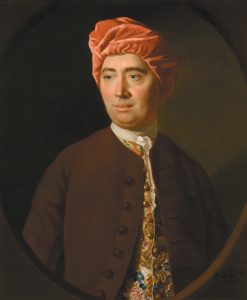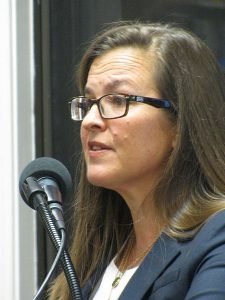‘In which case, the wisdom of a city founded on natural principles
depends entirely on its smallest group and element – the leading and
ruling element — and the knowledge that element possesses. The class
which can be expected to share in this branch of knowledge, which of all
branches of knowledge is the only one we can call wisdom, is by its nature,
apparently, the smallest class.’
Socrates in dialogue with Glaucon
‘Well, I think the first one to catch the eye is wisdom. And it seems to
have an unusual feature.’
‘What is that?’
‘It is truly wise, I think, this city we have described. It has good judg¬
ment, doesn’t it?’
‘Yes.’
‘Now this thing, judgment, is clearly knowledge of some sort. Good
decisions, I take it, are the result of knowledge, not ignorance.’
‘Obviously.’
‘But our city contains many types of knowledge, of very different
kinds.’
‘Of course it does.’
‘Is it the knowledge possessed by its carpenters which entitles us to call
c our city wise, and say it possesses good judgment?’
‘Certainly not,’ he said. ‘That merely entitles us to call it good at car¬
pentry.’
‘So a city is not to be called wise because of its knowledge and judg¬
ment in making the best possible wooden furniture.’
‘Absolutely not.’
‘How about its knowledge of making things out of bronze, or any other
knowledge of that kind?’
‘No, nothing like that,’ he said.
‘Nor the knowledge of how to grow crops from the soil, since that’s
called farming.’
‘So I believe.’
‘Is there, then,’ I asked, ‘among any of the citizens of this city we have
d just founded, any branch of knowledge which makes decisions about the
city as a whole – deciding on the best approach to itself and to other cities
– and not about one particular element in the city?’
‘There most certainly is.’
‘What is this knowledge, and in which group is it to be found?’
‘It is the knowledge possessed by the guardians,’ he said. ‘And it is
to be found in the rulers, whom we have just been calling the perfect
guardians.’ 11
‘And what is the label you give your city on the strength of this know¬
ledge?’
‘I call it sound in judgment, and truly wise.’
e ‘So which do you think our city will have more of? Metalworkers, or
these true guardians?’
‘Metalworkers,’ he said. ‘Far more.’
‘Of all the groups which have a branch of knowledge of their own, and
which are identified as a group, wouldn’t the guardians be the smallest?’
‘Easily the smallest.’
‘In which case, the wisdom of a city founded on natural principles
depends entirely on its smallest group and element – the leading and
ruling element — and the knowledge that element possesses. The class
which can be expected to share in this branch of knowledge, which of all
branches of knowledge is the only one we can call wisdom, is by its nature,
apparently, the smallest class.’
‘That’s very true,’ he said.




![Epistemology cranium-2099129_960_720[1]](https://cognitive-liberty.online/wp-content/uploads/cranium-2099129_960_7201-300x187.png)


![Free Assange FreePress-Freedom7[1]](https://cognitive-liberty.online/wp-content/uploads/FreePress-Freedom71-300x150.png)

![Plato's Allegory of the Cave ea35b7062ef5083ecd0b4401ef444f94eb6ae3d01db3144992f3c97d_640[1]](https://cognitive-liberty.online/wp-content/uploads/ea35b7062ef5083ecd0b4401ef444f94eb6ae3d01db3144992f3c97d_6401-222x300.png)

